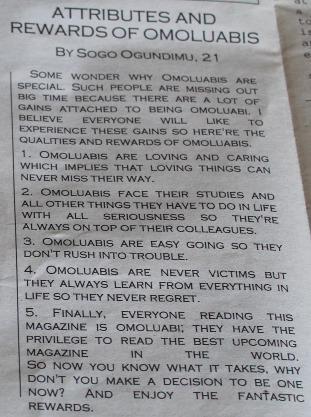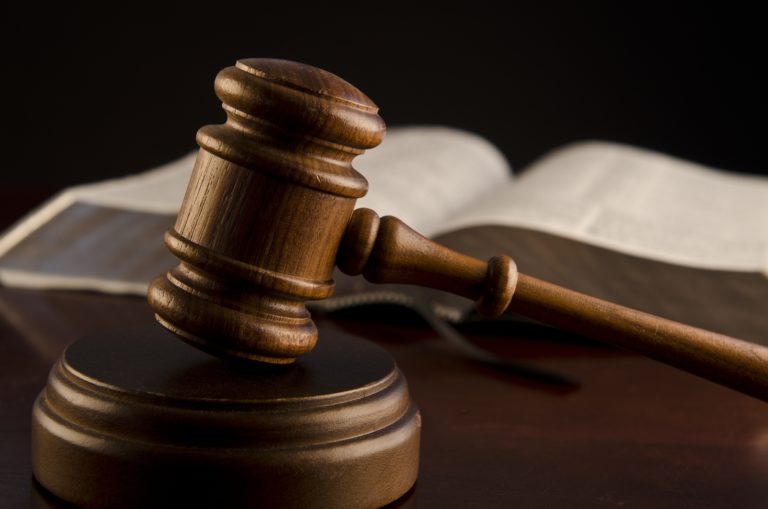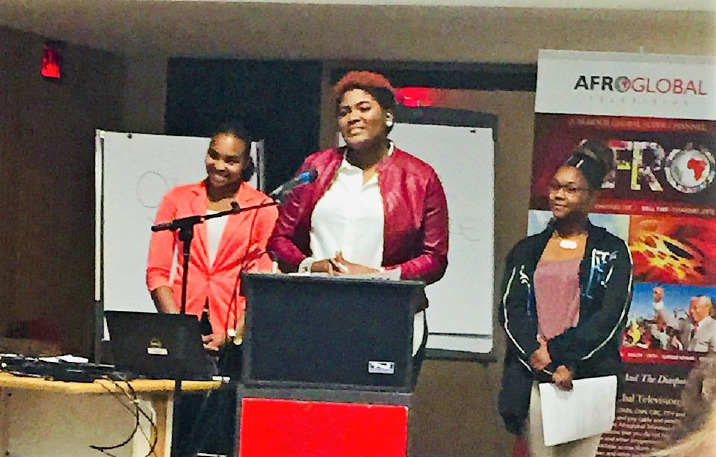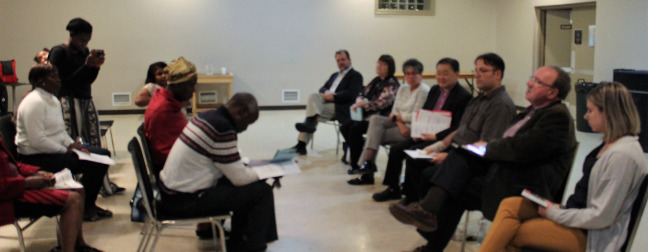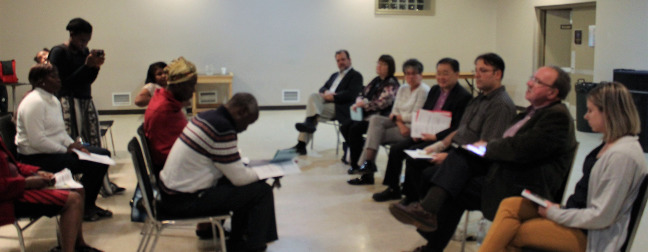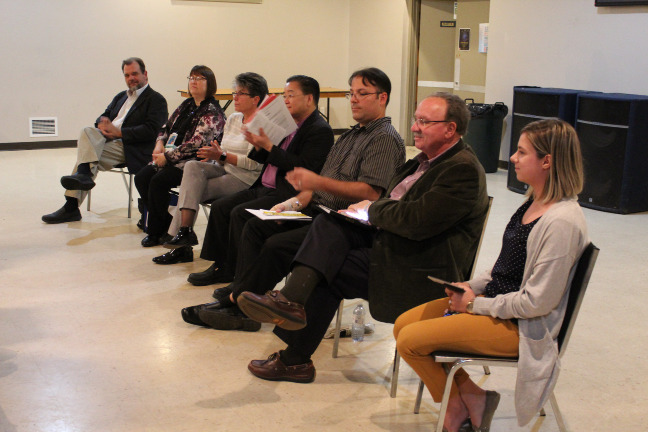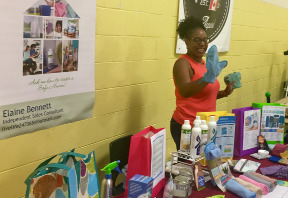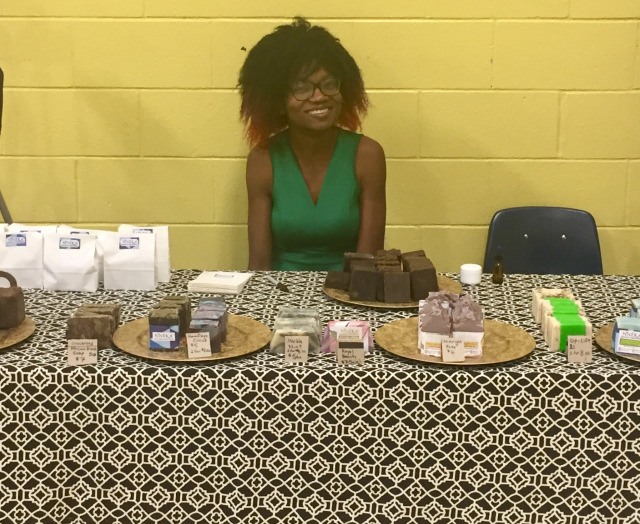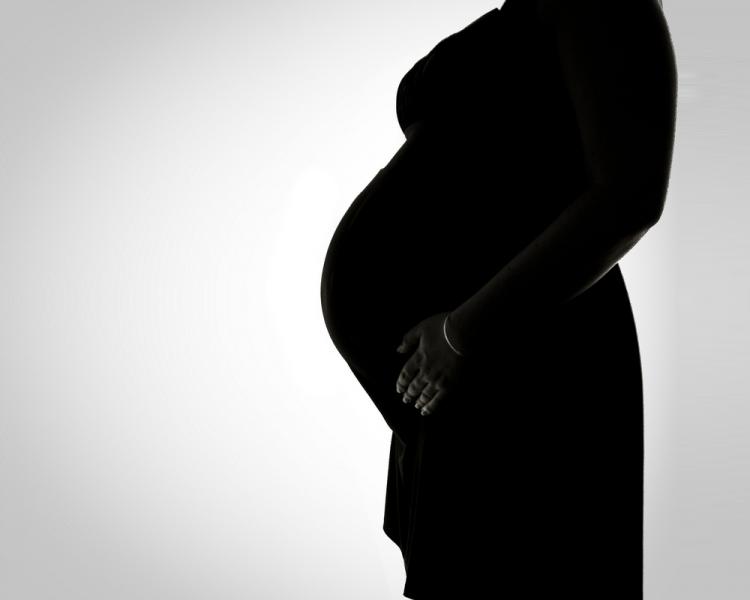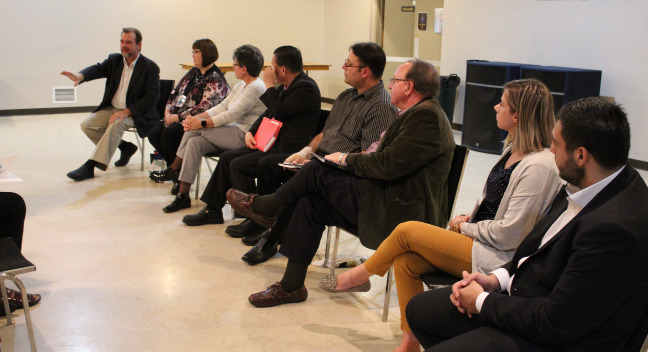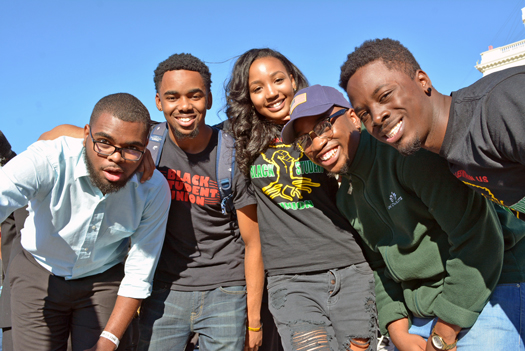Volume 1, numéro 5 Printemps / été 2005
The Act of Bravery
What is bravery?
The dictionary defines “bravery” as the quality or state of having or showing mental or moral strength to face danger, fear or difficulty.” Bravery can also be defined as the ability to confront pain, danger, or attempts of intimidation without any feeling of fear. It is strength in character that allows a person to always be seemingly bigger than the crisis, whether he is indeed more powerful or less than what he is facing. Bravery is also a quality that is, in and of itself, a means and an end all at once. For instance, in the well-known biblical story of David and Goliath, the former battled with the later and managed to outdo him. Despite the giant’s size and advantage in size, David was not afraid, thus, he was brave. In this case, David’s bravery becomes the essence of the story.
To be brave means to have the ability to endure and courage to pursue what is right. Bravery and courage are two qualities that exist together, and they are both of equal importance.
In order to understand bravery, one must understand its opposition – fear. Fear is an enemy and a cruel one at that. Not only is it important to know your enemies but it is infinitely beneficial to understand them.
There are supposedly the two contemporary greatest human fears along side death – a long standing human fear. But knowing that fear is inescapable, is exactly why bravery is of utmost necessity in life. Fear is the thing that paralyzes, while bravery is the thing that frees. Fear is the thing that chooses mediocrity, while bravery is the thing that takes the risk of chance, a chance that could bring greatness or defeat.
Bravery requires endurance because it requires persistence and perseverance. Bravery requires courage. When I think of all the people I have read about who have exhibited bravery and endurance, persistence and perseverance, I remember Moses and King David. Moses led the Israelites out of their slavery in Egypt and through the desert to the promised land, while David defeated one of Israel’s greatest enemies – Goliath.
I realize that bravery means many different things in different situations. Sometimes bravery can mean being the person who stands out in the crowd, as in the case of Moses to fight for his people, to be their voice. Other times bravery can mean putting up the fight of your life and fighting till the very end. At other times, bravery can mean to be grateful and content and with the state of your present situation, like Apostle Paul. But to be brave, one must show a steady mental and moral strength. One with unstable, poor mental health and an immoral mind cannot endure or be able to act bravely and courageously. To be brave, you must be willing to risk the possibility of terrifying ending. To be brave, is to be alive and to live in such a way that the world knows you are afraid, but you love more than you fear.
Akinkanju
Bravery has been a virtue in all civilizations since the beginning of time. In Yoruba it is known as “akinkanju” another Omoluabi principle. “Akinkanju” is the character trait that is displayed by courage in the face of risk or harm to an individual. Just as this trait is both lauded and coveted when possessed by another individual, it is also beneficial in the profession of law.
Success in the profession of law requires lawyers to represent unpopular causes and cases. This frequently comes with backlash from the community at large. Sometimes this even comes with backlash from the court itself. Pressing forward in the face of such opposition is impossible without bravery.
The Akinkanju virtue is equally important to being an Omoluabi. Just like a lawyer, an Omoluabi may be called upon to take a stand for truth and justice. This stance can be costly and requires courage. Defending the downtrodden is a task not only undertaken by lawyers, but is something that an Omoluabi will often be required to do.
Throughout history, countless people have solidified their status as heros because of their willingness to boldly embrace and display Akinkanju character. Many of these people have done so at great cost to themselves and has even cost some their lives. A fitting example of someone who was both an Omoluabi and a lawyer is the famed Nigerian lawyer, Gani Fawehinmi (1938-2009). He was an individual that suffered greatly because he refused to tolerate injustices from the government against the Nigerian people. He was frequently prosecuted and jailed for his convictions. Nevertheless, he was undeterred up until the time of his death. Even on his death bed, he rejected the country’s highest honour in protest for the state of affairs in his homeland.
Akinkanju is a trait that any Omoluabi can continue to cultivate. Courage when it is costly is a virtue that benefits us all.
United Voices : Celebrating African Canadian Excellence
Throughout history, people of African descent have proven their intelligence, courage and creativity time and time again. There are so many examples of black excellence, that one month simply doesn’t seem like enough time to shine well-deserved spotlights on the accomplishments of some truly exceptional individuals.
Hosted by local Historian, Irene Moore-Davis, United Voices took time to celebrate some of these individuals in a Town Hall Meeting at the Downtown Windsor Public Library on October 11th, 2018. The initiative is part of the United Voices Violence Prevention Campaign, sponsored by Silvertrust Media and its partners, and made possible by the Ontario Black Youth Action Plan/Ministry of Children, Community and Social Services.
The event gave attendees an opportunity to watch a short documentary and celebrate success stories within the African Canadian community. The documentary provided Bilal Mohamed, Winnie Tchoukou, and Tatyana Roberts, three teenagers from the Windsor area, the opportunity to interview local community leaders, Neil MacEachrane, Linda McCurdy, and Mike Akpata.
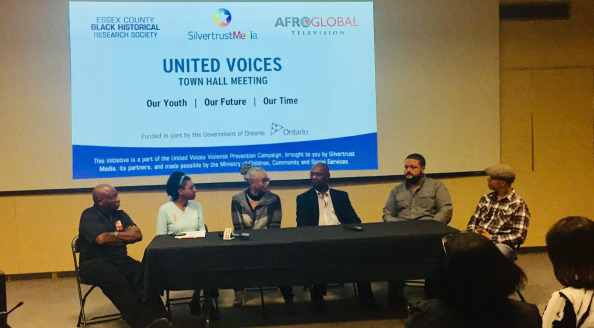
The documentary emphasized the point that our young people need space to determine what their full potential is and not be put into a box by society. “The way to make change is to have a seat at the table,” spoken by Mike Akpata, appeared to resonate with the audience; especially the youth. As a member of the Windsor Police Services and long time leader in his community, his wise words drove the message home that there is no limit to one’s potential and the success you can achieve. The goal is for school boards across Ontario to have access to the short documentary, with the hope that it will serve to inspire many young African-Canadians.
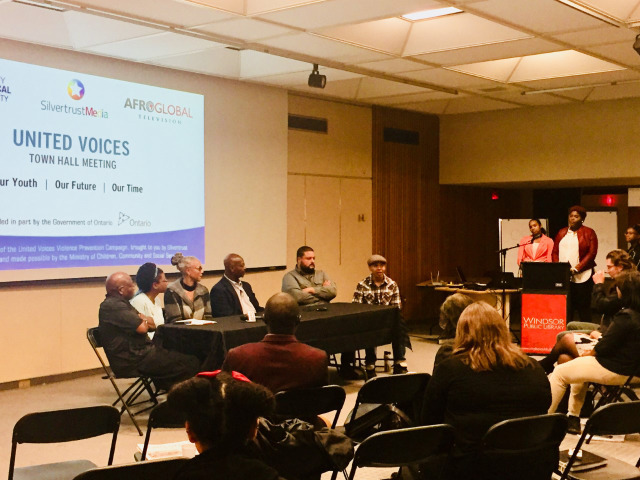
The premiere of the documentary transitioned into a vibrant exchange between the audience and an impressive panel that included, Kenny Gbadebo, Terrance Travis and, one of the individuals featured in the documentary, Linda McCurdy. Community activist and artist, Terrance Travis, reinforced and emphasized the importance of the community coming together to support events such as these when he said that “everyone here is doing something to strengthen the community.”
Mrs. Irene Moore-Davis noted that, “we do not always promote a culture of achievement” and the night served to amend this deficit in the community; helping to educate not only young people of African descent, but all ethnic and cultural backgrounds, about the vast possibilities that African Canadians are capable of achieving.
Relationship Counselling Seminar
On Saturday, September 15th, a relationship seminar took place at WaterWorld, from 10am to 12pm. Marriage and relationship coach, John Sullivan, came to Windsor’s WaterWorld to talk about relationships. He spoke about safety in relationships and how we consciously and unconsciously do things to one another. Sullivan’s relationship advice did not just apply to married couples but any type of relationship including: friendships, couples, families, and siblings.
In this seminar, Sullivan talked about his relationship with his wife and their experiences prior to learning the proper way to communicate with each other. Sullivan has a book called, “Dream Relationships”. This book talks about relationships, the human brain, and gives you the tools on how to achieve your happily-ever-after in a relationship.
Sullivan explained the three steps for a more conscious relationship: Safety, System, and Skills. Skills have four steps that work well for couples, families, kids, etc. Sullivan broke down what couple’s dialogue is into three steps: Mirroring- repeating back to your partner what they’ve said, Validation- hearing what he/she is saying, and Empathy- understanding your partners feelings. If you want to have a better relationship with your partner/kids/family, try to remove all negativity in the conscious relationship. Learn to talk to one another instead of just attacking and try to recognize and eliminate the negatives that you have experienced during your childhood. Communication is key!
After the seminar with John Sullivan, everyone had lunch and the opportunity to browse a few local venders that were at the event.
Earn my Vote: Windsor School Board Trustees
On Tuesday, October 3rd, those running for Windsor’s School Board trustees gathered at the Caribbean Centre to inform members of the community why we should vote for them. Those in attendance included two candidates from the Catholic School Board and six from the Public School Board.
All the Candidates from the Public school board were running for the first time, which created an even playing field at the event. Members from the audience brought up important questions such as bullying issues and how their children have been deterred from speaking their native language at school in the past. Incorporating more diverse reading options and including multicultural history lessons that reflect the diverse population in Canada was also a hot topic. Cathy Cooke, who is running for the Public School board highlighted that “we need to look at literature that meets the needs of the students”, a sentiment that rang true with the audience. Sarah Cipkar, who has experience setting up pop-up book shops for newcomers to Canada, emphasized that there needs to be an open dialogue between those providing and those receiving, “we need to ask questions” to those who we are trying to help, to make sure we are meeting the needs of the community.
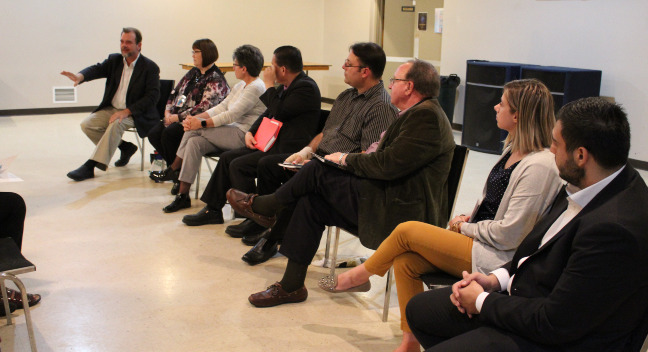
Another major issue was regarding the local clothing store, Freed’s of Windsor, that currently has the monopoly on Catholic school uniforms. Parents felt this was a long overdue issue that needed to be addressed and were surprised when the only Candidate in attendance up for re-election in the Catholic School Board, Fulvio Valentinis, informed the crowd that this issue has never been brought up at the Trustee’s meetings. School board trustees are advocates for the constituents they represent and encouraged the audience to get involved and also go through the proper channels, such as the Parents Council for their respective schools, when issues arise.
Black Youth with Character
Pẹlẹ o (Hello), my name is Bernice Babo and I’m a student at St. Angela’s, Catholic School. I’m also a black (Cameroonian) youth, aspiring to do great things in life. Being a black youth brings many struggles but I do my best to keep my character in place, stay in my lane and advance in life. In this article I will explain what a person with character is and then as tribute to my ethnicity I will also explain what it means to be a black youth with character. When I explain all of this, think about what type of character you have.
First thing, what is character? Character is, “one of the attributes or features that make up or distinguish an individual.” When you think about it, it seems like it’s all about your personality but really it has to do with showing others your personality in a good way. For example, if you believe your character is caring and helpful, show that you can help others and care for them. On the other hand, if you believe that your personality is a bad one, try to change that and turn to the right path.
Now, as a black youth, there are some troubles such as being feared because of your skin colour and more. However, you can change that and turn people’s view of you and your race around. Show them that you are so much more than what they see you as. You see it all works in a matter of perspective, trust and communication. That’s what makes up a true person with real character.
Now that I have told you about character, what type of character do you think you have and how can you change and improve it ?
